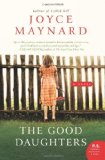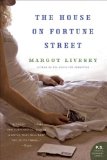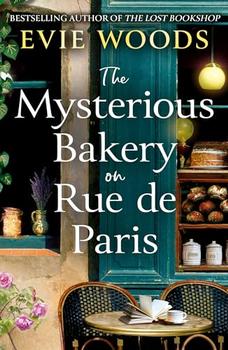Summary | Excerpt | Reading Guide | Reviews | Beyond the book | Read-Alikes | Genres & Themes | Author Bio

A Novel
by Julia GlassWhen a piece of her coconut cake is served to the governor of New Mexico, he woos Greenie Duquette, a Greenwich Village pastry chef away from the life she knows to become his chef – a change that sets in motion a period of adventure and upheaval not just for Greenie but for many others around her.
From the author
of the beloved novel Three Junes comes a rich and commanding story about
the accidents, both grand and small, that determine our choices in love and
marriage. Greenie Duquette, openhearted yet stubborn, devotes most of her
passionate attention to her Greenwich Village bakery and her four–year–old son,
George. Her husband, Alan, seems to have fallen into a midlife depression, while
Walter, a traditional gay man who has become her closest professional ally, is
nursing a broken heart.
It is at Walter’s restaurant that the visiting governor of New Mexico tastes
Greenie’s coconut cake and decides to woo her away from the city to be his chef.
For reasons both ambitious and desperate, she accepts—and finds herself heading
west without her husband. This impulsive decision will change the course of
several lives within and beyond Greenie’s orbit. Alan, alone in New York, must
face down his demons; Walter, eager for platonic distraction, takes in his
teenage nephew. Yet Walter cannot steer clear of love trouble, and despite his
enforced solitude, Alan is still surrounded by women: his powerful sister, an
old flame, and an animal lover named Saga, who grapples with demons all her own.
As for Greenie, living in the shadow of a charismatic politician leads to a
series of unforeseen consequences that separate her from her only child. We
watch as folly, chance, and determination pull all these lives together and
apart over a year that culminates in the fall of the twin towers at the World
Trade Center, an event that will affirm or confound the choices each character
has made—or has refused to face.
Julia Glass is at her best here, weaving a glorious tapestry of lives and
lifetimes, of places and people, revealing the subtle mechanisms behind our most
important, and often most fragile, connections to others. In The Whole World
Over she has given us another tale that pays tribute to the extraordinary
complexities of love.
If Julia Glass had limited her second novel to just the central story of patisserie owner, Greenie, and her psychologist husband, Alan, she would not have held my interest; but like Anthony Trollope (or for that matter, his granddaughter, Joanna), Glass's strength is in the way she weaves the threads of many people's stories into a colorful quilt that shows family life in all its shapes and sizes. If you're in the market for a story to warm the cockles of your heart, this might well be it...continued
Full Review
(117 words)
This review is available to non-members for a limited time. For full access,
become a member today.
(Reviewed by BookBrowse Review Team).
Julia Glass's first novel, Three Junes, won the 2002 National Book Award for Fiction. Her fiction has been honored with a National Endowment for the Arts Literature Fellowship, a New York Foundation for the Arts Fellowship, three Nelson Algren Fiction Awards, the Tobias Wolff Award, and the Pirate's Alley Faulkner Society Medal for Best Novella. She spent the 2004-2005 academic year as a fellow at the Radcliffe Institute for Advanced Studies, where she finished The Whole World Over. She is a longtime New Yorker who now lives in Massachusetts with her ...
This "beyond the book" feature is available to non-members for a limited time. Join today for full access.

If you liked The Whole World Over, try these:

by Joyce Maynard
Published 2011
The bestselling author of Labor Day returns with a spellbinding novel about friendship, family secrets, and the strange twists of fate that shape our lives.

by Margot Livesey
Published 2009
Margot Livesey skillfully reveals how luck—good and bad—plays a vital role in our lives, and how the search for truth can prove a dangerous undertaking.



Polite conversation is rarely either.
Click Here to find out who said this, as well as discovering other famous literary quotes!